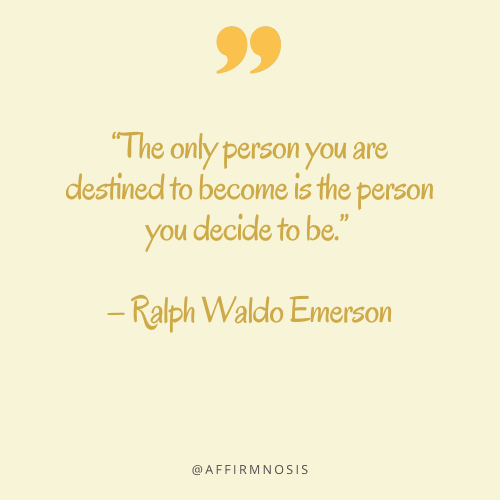Personal development is an ongoing process of self-improvement that empowers individuals to identify and achieve their goals. It involves a systematic approach to enhancing one’s skills, knowledge, and attitudes, thereby increasing one’s overall potential.
Personal development encompasses a range of areas, from physical health and mental well-being to career advancement and social relationships. With its emphasis on continuous growth and self-discovery, personal development has become a crucial aspect of modern life.
Explanation of Personal Development
Personal development is the conscious pursuit of personal growth by expanding self-awareness and knowledge, improving personal skills and abilities, setting achievable goals, and making necessary changes in life circumstances. The process requires individuals to take responsibility for their own learning by engaging in activities that promote self-improvement.
Personal development can be seen as a lifelong journey that involves personal reflection, goal-setting, planning, taking action towards achieving those goals.
The concept of personal development has been around for centuries but it has gained more importance in recent times due to the changes in the nature of work as well as technological advancements that have made learning opportunities more accessible than ever before. Today’s society demands individuals who are flexible in thought processes with a willingness to adapt to change quickly.
Importance of Personal Development in Achieving Goals and Success
Personal development is crucial for achieving success as it enables individuals to discover their strengths while also identifying areas where they need improvement. By developing themselves both personally and professionally through conscious efforts towards growth and constant learning they can achieve great things such as career advancement or even starting their own businesses.
Moreover, personal development allows individuals to set realistic goals based on their strengths while also identifying any obstacles that may hinder them from achieving those goals.
Through active pursuit of knowledge they can acquire new skills which will help them overcome these obstacles allowing them greater success Personal development plays a vital role in self-awareness.
By developing themselves, individuals can gain a better understanding of their values and beliefs which allows them to make better decisions when it comes to life choices. It also allows for more effective communication in relationships both professionally and personally.

The Basics of Personal Development
Self-awareness is the foundation of personal development. It’s the ability to objectively assess your strengths, weaknesses, values, beliefs, and emotions.
Understanding Self-Awareness and Self-Reflection
Without self-awareness, it’s difficult to identify areas for improvement and set achievable goals. Self-reflection is a tool for enhancing self-awareness by examining your thoughts, feelings, and behaviors in past experiences.
It helps you learn from mistakes and make more informed decisions in the future. Regularly practicing self-reflection can improve emotional intelligence and resilience.
To develop self-awareness and self-reflection skills:
- Spend time alone with your thoughts without distractions
- Journal regularly to document your emotions and experiences
- Practice mindfulness meditation to observe your thoughts without judgment
- Solicit feedback from trusted friends or mentors
Setting Goals and Creating a Plan for Achieving Them
Setting goals is a critical component of personal development as it provides direction for growth. Goals should be specific, measurable, attainable, relevant, and time-bound (SMART). By creating a plan with actionable steps towards achieving each goal can help increase motivation when progress is made.
To set goals effectively:
- Identify what you want to achieve by clearly defining what success looks like
- Benchmark your current state in relation to the desired outcome
- Create SMART goals that are challenging yet achievable < li >Break down large goals into smaller milestones < li >Establish deadlines for each milestone
Developing Positive Habits and Routines
Habits and routines are powerful tools for personal growth by reducing decision fatigue and increasing consistency. Positive habits promote productivity, creativity, and health while negative habits do the opposite.
To develop positive habits:
- Identify a specific habit you want to create
- Start small by committing to a simple action
- Associate the habit with an existing routine or trigger
- Track progress regularly to stay accountable
- Celebrate small wins along the way
Creating a daily routine can also improve focus, energy, and mental clarity. A well-designed routine includes structured time for work, rest, exercise, socializing, and self-care. Experimentation is key when creating routines as everyone has different needs.
Understanding self-awareness and self-reflection skills are crucial in personal development as they provide insight into areas of improvement. Setting SMART goals with actionable steps helps create an achievable plan for success while developing positive habits fosters growth through consistency.
Niche Subtopics in Personal Development
Effective time management is a vital skill that can significantly impact an individual’s productivity and personal development. Managing time allows individuals to accomplish their goals and objectives efficiently by prioritizing tasks, setting deadlines, and minimizing distractions.
Procrastination can be a significant hindrance to time management skills, making it essential to identify procrastination triggers and address them accordingly.
Time Management Strategies for Productivity
Some useful strategies for effective time management include creating a schedule or calendar that outlines daily tasks, breaking down larger tasks into smaller ones, delegating responsibilities where possible, and eliminating any unnecessary distractions. The Pomodoro technique is also a popular time management strategy that involves working for 25-minute intervals followed by short breaks.
Mindfulness Practices for Stress Reduction
Incorporating mindfulness practices into one’s daily routine has been proven to reduce stress levels significantly. Mindfulness involves being present in the moment without judgment or distraction while paying attention to one’s thoughts and feelings. Practicing mindfulness can improve cognitive function, increase emotional intelligence, and promote mental well-being.
Popular mindfulness techniques include meditation, deep breathing exercises, yoga, visualization techniques, body scans, and progressive muscle relaxation. These practices help calm the mind-body connection by reducing stress hormones such as cortisol while improving mood-regulating neurotransmitters like serotonin.
Communication Skills for Building Relationships
Effective communication skills are crucial for building relationships both in personal life and professional career growth. Strong communication skills enable individuals to articulate their ideas clearly while listening actively to others’ opinions.
Communication is essential in conflict resolution as well as negotiations with colleagues or clients. To improve communication skills on must take measures such as practicing active listening skills by acknowledging nonverbal cues like eye contact posture tone of voice etc., use concise language avoiding ambiguity maximizing clarity avoiding technical jargon unless necessary and learning how to present ideas persuasively.
Another effective communication strategy is the use of assertive communication. This style of communication involves expressing one’s thoughts and feelings honestly while respecting others’ opinions.
It helps to build trust, establish boundaries, and avoid misunderstandings that can damage relationships. Incorporating these niche subtopics in personal development can significantly impact individuals’ professional and personal growth.
By improving time management skills, practicing mindfulness techniques for stress reduction, and building effective communication skills for better relationships with colleagues or friends. Individuals can create a positive lifestyle change that will help them achieve their long-term objectives.
Advanced Techniques in Personal Development
Emotional intelligence is the ability to recognize, understand, and manage one’s own emotions while also being able to recognize and empathize with others’ emotions. By developing emotional intelligence, individuals can improve their communication skills, build stronger relationships, and achieve greater success in both personal and professional realms.
Emotional Intelligence Training: The Key to Successful Interpersonal Relationships
Emotional intelligence training typically includes activities such as mindfulness meditation, self-reflection exercises, and role-playing scenarios. One key aspect of emotional intelligence training is learning how to manage one’s own emotions effectively.
This involves the ability to regulate emotional responses in high-pressure situations by using techniques like deep breathing or reframing negative thoughts. In addition, emotional intelligence training can help individuals develop empathy for others by learning how to read body language and verbal cues.
Overall, investing time into honing your emotional intelligence skills can pay off significantly in both your personal and professional life. By being able to effectively handle challenging emotions in yourself and others while maintaining positive relationships with those around you, you will be better equipped for success in all areas of your life.
Cognitive-Behavioral Therapy: Overcoming Limiting Beliefs & Negative Thought Patterns
Cognitive-behavioral therapy (CBT) is a form of therapy that focuses on helping individuals identify and change negative thought patterns that may be holding them back from achieving their goals. This technique has been shown to be highly effective for treating a range of conditions including anxiety disorders, depression, and post-traumatic stress disorder. The underlying idea behind CBT is that our thoughts influence our feelings which then influence our behaviors.
Therefore if we want to change our behavior or how we feel about something we need first to modify our thought patterns. Through counseling sessions with a trained CBT therapist or self-guided exercises guided by a book or an app, individuals can learn how to identify and change negative thought patterns that may be holding them back.
By addressing underlying problems, such as anxiety or self-doubt that may be preventing you from achieving your goals, CBT can help you overcome these mental blocks and achieve greater success in life. By replacing negative thought patterns with more positive ones that are conducive to success, individuals can improve their self-confidence and overall sense of well-being.
Leadership Development: Enhancing Professional Skills
Leadership skills are essential for professional success regardless of your industry or job title. Being an effective leader requires the ability to communicate effectively, make tough decisions efficiently, and inspire others to follow your lead.
Leadership development programs offer training on these key skills and more. In leadership development programs, individuals learn about effective communication techniques such as active listening and nonverbal communication.
They also learn about strategies for decision-making such as analyzing pros and cons or brainstorming solutions. Beyond this foundational knowledge, leadership development programs can also teach individuals how to effectively motivate others by developing their own interpersonal skills.
Ultimately, enhancing one’s leadership skills not only improves professional performance but also enhances personal growth by building confidence in one’s own abilities. Through ongoing practice and learning opportunities offered through leadership development programs or mentorship opportunities with experienced leaders in your field you can develop the skills necessary to take on leadership roles confidently.
By investing time into advanced personal development techniques like emotional intelligence training, cognitive-behavioral therapy (CBT), and leadership development not only benefit yourself but those around you too. With a deeper understanding of yourself comes the capability of cultivating relationships more positively resulting in a better quality of life both personally and professionally.
The Hidden Gems of Personal Development
Sleep is often overlooked in discussions about personal development, but it plays a crucial role in both our mental health and productivity. Lack of sleep can lead to decreased cognitive function, mood swings, and weakened immune systems.
The Importance of Sleep on Mental Health and Productivity
On the other hand, getting enough sleep can improve memory retention and problem-solving abilities. To optimize your sleep for better mental health and productivity, it is recommended to aim for 7-8 hours of sleep per night.
Additionally, establishing a regular sleep schedule where you go to bed and wake up at the same time each day can help regulate your body’s natural circadian rhythm. Limiting caffeine intake and avoiding screens before bedtime may also contribute to more restful sleep.
The Impact of Nutrition on Cognitive Function and Mood
While many people associate personal development with physical exercise or intellectual pursuits, nutrition should not be overlooked as an important factor in achieving one’s goals. Eating a healthy diet rich in whole foods such as fruits, vegetables, whole grains, lean proteins, and healthy fats can improve cognitive function and mood regulation.
Foods that contain omega-3 fatty acids like salmon or walnuts have been linked to improved memory function and reduced risk of depression.
Meanwhile, foods high in sugar or unhealthy fats may lead to inflammation in the brain that impairs cognitive function. Additionally, maintaining a balanced diet with adequate hydration can give you sustained energy throughout the day that allows you to accomplish more tasks towards your personal development goals.
The Benefits of Journaling for Self-Reflection and Goal Setting
Journaling is an often-overlooked technique for improving self-awareness by providing an outlet for reflection on one’s emotions, thoughts ,and experiences. Regular journaling helps individuals identify patterns in their behavior or thought patterns that may be hindering personal development.
Journaling also facilitates goal setting by allowing you to clarify what you want to achieve and develop a plan for reaching your goals.
It can help manage stress, create perspective, enhance creativity, and promote overall wellbeing. To get started with journaling, identify a comfortable space and time where you won’t be disturbed.
Start writing about anything that comes to mind without worrying about structure or grammar. Over time, you may find it helpful to write in response to prompts such as “what am I grateful for today?” or “what is one thing I accomplished this week?”
While the basic tenets of personal development – self-awareness, goal setting and positive habits – are essential elements of growth and success, there are often overlooked areas of personal development that can have significant impact on overall wellbeing.
By prioritizing sleep hygiene, nutrition intake, and journaling as part of personal growth journey, individuals will cultivate a holistic approach towards achieving their desired outcomes in both their professional and personal lives.
Why Personal Development is Crucial to Achieving Success
Personal development is an essential component of success in all areas of life. Learning and growing as individuals helps us to identify our strengths and weaknesses so that we can maximize our potential. Through personal development, individuals gain clarity on what they want out of life, learn the skills needed to achieve it, and develop the habits required to sustain success in the long run.
Without ongoing personal growth, it can be challenging to keep up with the demands of a constantly changing world. Those who take an active role in their own development are better equipped to deal with challenges and setbacks and are more likely to succeed over time.
The Importance of Continuous Learning, Practice, and Reflection
While setting goals is crucial for successful personal development, it’s equally important that we continually learn from our experiences. This involves a willingness to experiment with new ideas, seek out feedback from others, and reflect on our progress regularly.
Through continuous learning, practice, and reflection we gain greater self-awareness about our values, beliefs and behaviors. As a result of this deeper understanding we’re able to make more informed decisions about where we want to go in life.
The Power of Community Support
Personal development can be challenging work at times but it doesn’t have to be done alone. Surrounding ourselves with like-minded individuals who share similar goals can make all the difference when it comes down to staying motivated over time. Whether through joining a group or simply seeking out mentors or peers who inspire us – having a supportive community around us can help us overcome obstacles while also providing an opportunity for growth through shared experiences.
Celebrating Small Wins Along The Way
– in pursuing personal growth –it’s important not lose sight of all the progress made along the way. Celebrating small wins along the way can help maintain momentum during challenging times and provide much-needed encouragement to keep moving forward in pursuit of long-term goals.
By focusing on the positive changes that come with personal development, individuals can remain optimistic about achieving their vision of success, no matter how big or small.
20 quotes on personal development:
- “Personal development is the belief that you are worth the effort, time, and energy needed to develop yourself.” – Denis Waitley
- “The only person you are destined to become is the person you decide to be.” – Ralph Waldo Emerson
- “Investing in yourself is the best investment you will ever make. It will not only improve your life, it will improve the lives of all those around you.” – Robin Sharma
- “The only limit to your impact is your imagination and commitment.” – Tony Robbins
- “Change is the end result of all true learning.” – Leo Buscaglia
- “The only journey is the journey within.” – Rainer Maria Rilke
- “There is nothing noble in being superior to your fellow man; true nobility is being superior to your former self.” – Ernest Hemingway
- “The greatest discovery of all time is that a person can change his future by merely changing his attitude.” – Oprah Winfrey
- “The only thing standing between you and your goal is the story you keep telling yourself as to why you can’t achieve it.” – Jordan Belfort
- “The will to win, the desire to succeed, the urge to reach your full potential… these are the keys that will unlock the door to personal excellence.” – Confucius
- “Personal development – self-discovery, self-awareness, self-growth and self-improvement – is the catalyst that drives a person’s evolution, growth and success.” – Dr. T.P.Chia
- “The good life is a process, not a state of being. It is a direction, not a destination.” – Carl Rogers
- “What we fear doing most is usually what we most need to do.” – Tim Ferriss
- “The only way that we can live, is if we grow. The only way that we can grow is if we change. The only way that we can change is if we learn. The only way we can learn is if we are exposed. And the only way that we can become exposed is if we throw ourselves out into the open. Do it. Throw yourself.” – C. JoyBell C.
- “The swiftest way to triple your success is to double your investment in personal development.” – Robin Sharma
- “The biggest room in the world is the room for improvement.” – Helmut Schmidt
- “The only person you should try to be better than is the person you were yesterday.” – Matty Mullins
- “The greatest glory in living lies not in never falling, but in rising every time we fall.” – Nelson Mandela
- “We are each gifted in a unique and important way. It is our privilege and our adventure to discover our own special light.” – Mary Dunbar
- “The only thing that stands between you and your dream is the will to try and the belief that it is actually possible.” – Joel Brown
These quotes emphasize the importance of personal development, self-improvement, and the power of belief in achieving one’s goals.
20 affirmations that can help you with personal development:
- I am capable of achieving my goals and dreams.
- Every day, I grow stronger and more resilient.
- I embrace the opportunity to learn and grow.
- My mind is filled with positive, nurturing thoughts.
- I am open to new ideas and experiences.
- I am constantly improving and becoming a better version of myself.
- I am in control of my actions and decisions.
- I am kind to myself and others.
- I choose to focus on the positive aspects of life.
- I am not defined by my mistakes but by how I recover from them.
- I possess the qualities needed to be extremely successful.
- My potential to succeed is limitless.
- I trust in my ability to create a fulfilling and rewarding life.
- I am patient and persistent in my pursuit of success.
- I welcome change and adapt to new situations with ease.
- I am deserving of happiness, success, and abundance.
- I let go of any negative feelings about myself and accept all that is good.
- I am grateful for the opportunities life presents to me.
- I am confident in my ability to solve problems and overcome challenges.
- Every step I take is bringing me closer to my true purpose.




























































